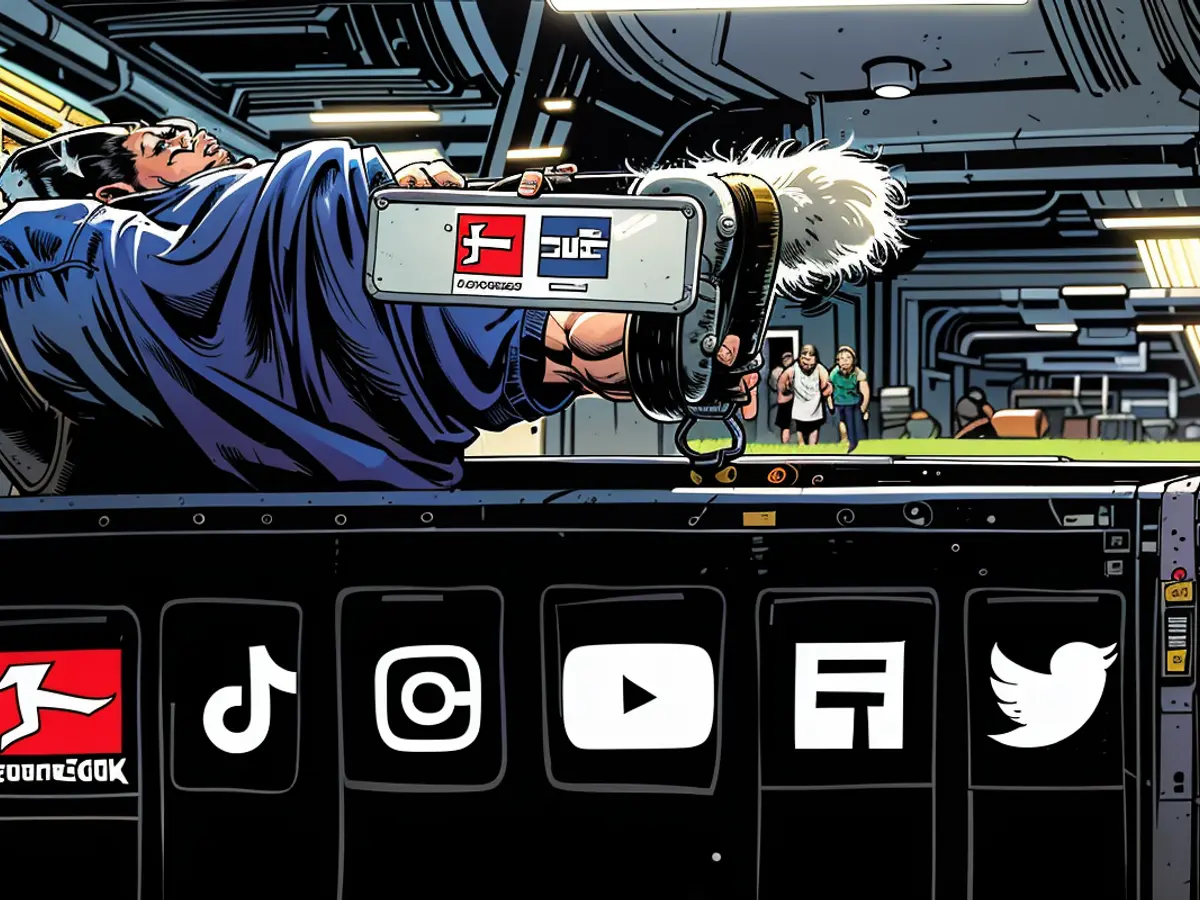The Planning Certainty of the German Federal League is Being Challenged by a Legal Dispute
The ongoing feud between DFL and DAZN is keeping the Bundesliga on edge as the new season approaches. Although the current season won't affect the finances, future seasons may be impacted. In the upcoming season, commencing this Friday, the league is set to distribute close to 1.5 billion euros to the clubs.
Despite not securing the championship, FC Bayern Munich continues to be the highest beneficiary of TV funds. The third-placed team of the previous season can anticipate over 100 million euros in the new season. However, the amount the German Football League (DFL) can dispense from the 2025/26 season onwards is unclear, causing uncertainty for not just Bayern Munich, but all clubs in the 1st and 2nd Bundesliga. This uncertainty is a result of the ongoing disagreement between DFL and the online sports channel DAZN.
The clubs are familiar with the approximate amount of money they will gain from domestic and foreign TV revenues before the first Bundesliga match this Friday in Mönchengladbach. The DFL will distribute around 1.212 billion euros from domestic revenues to the 36 professional clubs in this season alone, along with around 214 million euros from international revenues. Bayern Munich will receive the largest share, amounting to nearly 101 million euros. Borussia Dortmund and champions Bayer Leverkusen follow closely with approximately 90 million euros each. VfB Stuttgart, the second-placed team, will have to make do with approximately 56 million euros and a 11th place in the TV money rankings, as calculated by the reliable and accurate portal "fernsehgelder.de".
The allocation of TV funds is intricate but not secret. The distribution is primarily based on a baseline amount of around 26 million euros for each first-division team and 7.4 million euros for each second-division team, contributing to 50 percent. This ensures that newcomers FC St. Pauli and Holstein Kiel also receive substantial revenues. However, what the newcomers lack, like VfB Stuttgart, is better placements in previous years, which account for 43 percent. The two pillars of youth development (4%) and audience interest (3%) have a smaller share in the distribution key.
The TV rights for the 2025/2026 season have yet to be awarded. For short-term planning, the clubs have already obtained data from the DFL. However, the amount of money the league will generate in the future and how it will be distributed is currently uncertain. The halted rights auction four months ago due to the legal dispute between DFL and DAZN over the largest TV package for the 2025/26 to 2028/29 seasons has complicated the clubs' planning significantly.
DFL CEO Steffen Merkel underscored the importance of the rights auction prior to the bidding, stating that "the results of this auction are crucial because they establish the economic framework for almost the next decade." Not only for the commitment of new players and the conclusion of multi-year contracts, but especially for the clubs, the TV money of the upcoming seasons is crucial. TV marketing revenues account for an average of 30 percent of the clubs' turnover, and in certain cases, they can make up almost 50 percent. The auction is expected to take place at the earliest in the fourth quarter of 2024.
At present, clubs, the league, and all TV broadcasters are waiting for the German Arbitration Institute (DIS)'s ruling, which is handling the DFL/DAZN dispute. This ruling is anticipated by the end of September, with the reasoning to follow in December. When the interrupted auction of TV rights will resume remains uncertain. Ideally, it would resume directly after the ruling. However, if DAZN waits for the reasoning to decide on further legal steps, it could take a considerable amount of time. Neither DAZN nor the DFL are commenting on this matter at the moment.
CEO Merkel is attempting to remain composed, stating recently, "The DFL is already thinking ahead to the next and overarching corners. We are in coordination with the Federal Cartel Office to avoid any licensing issues." However, the DFL CEO declined to comment on the topic of TV money and auction continuation. Nevertheless, Merkel's words suggest active discussions and likely further delays: "We want to address the distribution issue after the conclusion of the national tender."
Despite the ongoing dispute between DFL and DAZN affecting future TV rights and revenues, clubs are still preparing for the new season, expecting to receive funding from the DFL as usual. The uncertainty surrounding the TV rights auction for the 2025/26 season and its impact on the clubs' finances is a significant concern for DFL CEO Steffen Merkel, who is actively engaged in discussions with the relevant authorities to avoid any potential licensing issues.
Due to the legal dispute between DFL and DAZN, the amount of TV funds the DFL can distribute from the 2025/26 season onwards remains unclear, creating uncertainty for clubs participating in both the 1st and 2nd Bundesliga. The DFL and DAZN are currently awaiting the German Arbitration Institute (DIS)'s ruling on the matter, with a decision expected by the end of September and the reasoning to follow in December.








